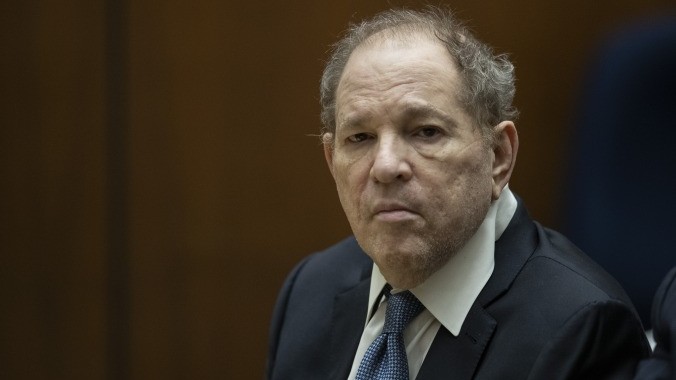Harvey Weinstein’s 2020 Rape Conviction Overturned in New York, But Will Remain in Prison
The New York Court of Appeals determined that the judge who oversaw Weinstein’s trial in 2020 made two major mistakes warranting a new trial.
Photo: Shutterstock Latest
On Thursday, the New York Court of Appeals issued a 4-3 ruling overturning Harvey Weinstein’s 2020 conviction on felony sex crime charges and called for Weinstein, who’s since been accused of sexual abuse by over 100 women, to receive a new trial. In their decision, the majority argued that the judge who oversaw Weinstein’s trial made two major mistakes: First, they determined the judge shouldn’t have allowed several of the women accusing Weinstein of sexual misconduct to testify against him because their allegations were separate from the charges against him. Second, the majority claims that because prosecutors said they would question Weinstein about the other women’s allegations if he testified, this prevented Weinstein from testifying in his trial altogether.
Taken together, the judges in the majority called this “an abuse of judicial discretion to permit untested allegations of nothing more than bad behavior that destroys a defendant’s character but sheds no light on their credibility as related to the criminal charges lodged against them.”
-

-

-

-

-

-

-

-

-

-

-

-

-

-

-

-

-

-

-

-

-

-

-

-

-

-

-

-

-

-

-

-

-

-

-

-

-

-

-

-








































